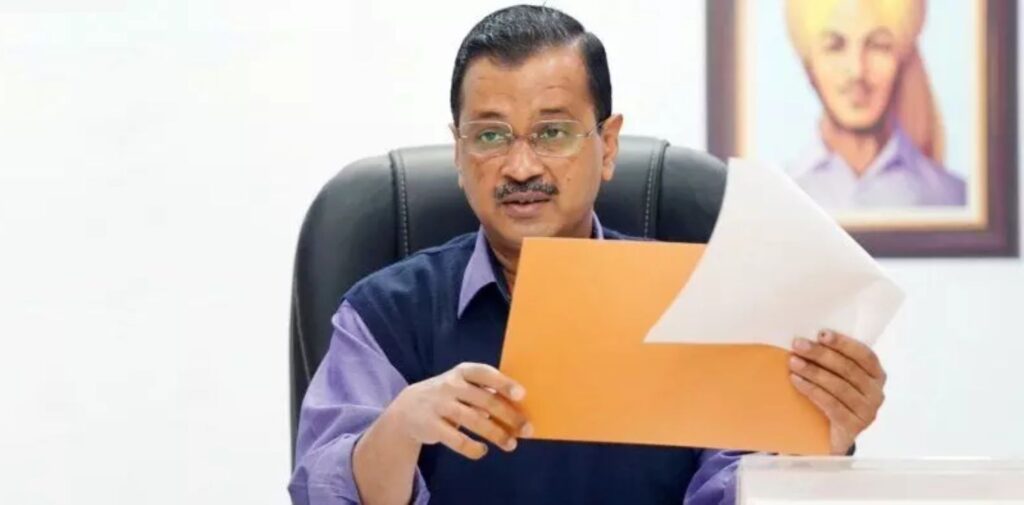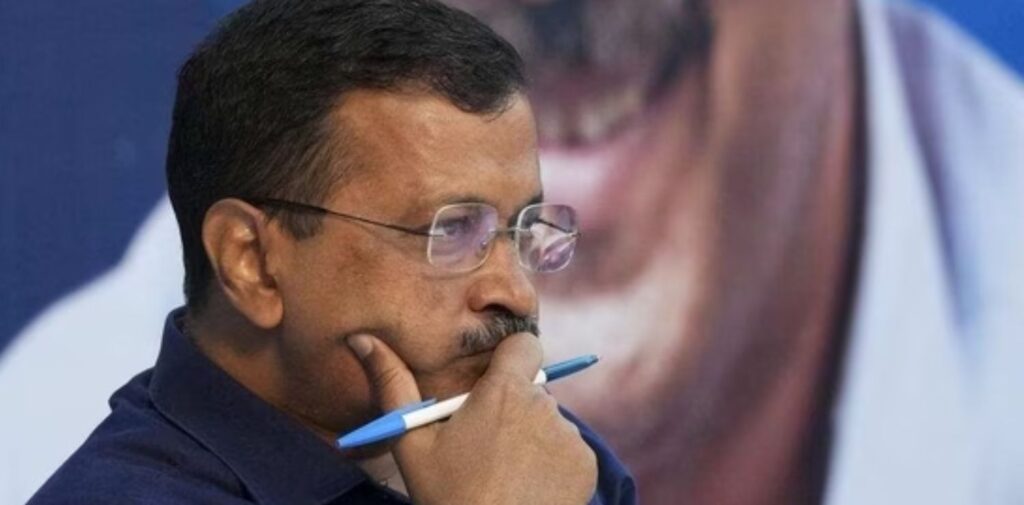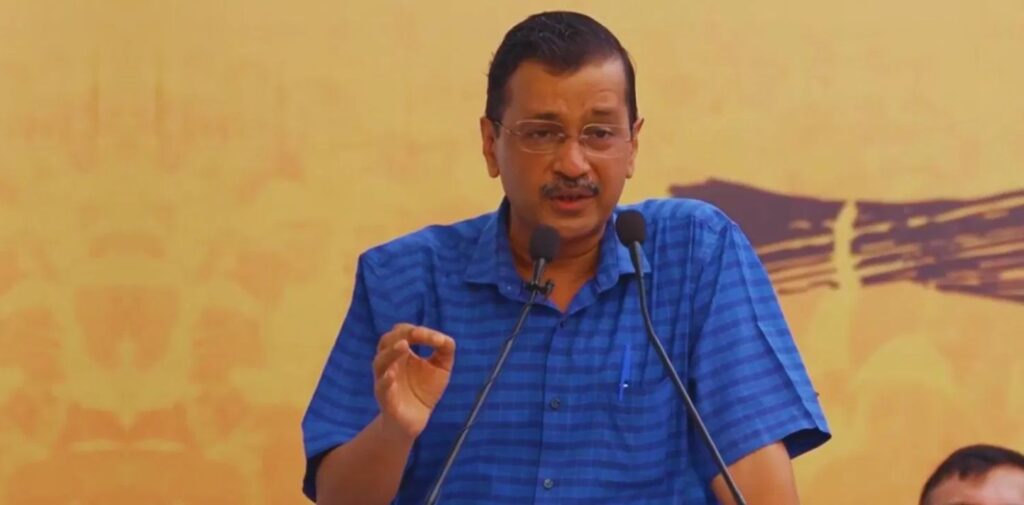Arvind Kejriwal, the Chief Minister of Delhi and the face of the Aam Aadmi Party (AAP), has once again caught the attention of political analysts and the public by offering his resignation. This isn’t the first time Kejriwal has made such a move, leaving people wondering if this is a strategic maneuver or simply a habit of evading responsibility when the going gets tough. While some may view his actions as a political masterstroke, others see it as a reflection of his inability to stay committed when confronted with challenges. This article critically examines Kejriwal’s resignation, exploring whether it is a genuine expression of frustration or a calculated political ploy.
A History of Resignations: A Troubling Pattern?
One cannot ignore that this isn’t Arvind Kejriwal’s first resignation. Back in 2014, during his first stint as Delhi CM, Arvind Kejriwal resigned after just 49 days in office, citing the lack of support in passing the Jan Lokpal Bill. His abrupt departure at that time was criticized by many as a hasty and immature decision, raising questions about his capability to handle governance. Fast forward to 2024, and Kejriwal is again talking about stepping down. This recurring theme of offering resignation, often at critical junctures, paints a troubling picture of a leader who may lack the grit to withstand political pressure and long-term challenges.

In a political landscape where leaders are expected to persevere, Kejriwal’s frequent exits suggest a leader who may be more interested in symbolic gestures than in the hard work of governance. Is it escapism, or does he simply lack the stamina to see his policies through when faced with obstacles?
Playing the Martyr: A Political Tactic?
There is a growing perception that Kejriwal thrives on playing the victim card, positioning himself as the lone fighter against a corrupt system. This was evident in his 2014 resignation, where he framed his exit as a protest against the “system” that didn’t allow him to work effectively. Fast forward to today, and his resignation rhetoric feels like déjà vu. By once again framing his exit as a stand against adversaries, Kejriwal could be attempting to garner sympathy and project himself as a martyr for the people’s cause.
This tactic works well in a country like India, where leaders often elevate themselves by portraying external forces as the root of their failures. However, one must ask—how long can a leader continue to blame others without taking responsibility? Kejriwal’s repeated exits give the impression that when things don’t go his way, his first instinct is to quit rather than engage in the difficult, but necessary, task of problem-solving.
Failure to Deliver on Promises
Kejriwal’s frequent resignation offers also raise a broader question about his ability to deliver on the lofty promises that brought him to power. The AAP leader has been a vocal critic of corruption, poor governance, and inefficiency, but his own governance track record is not without flaws. From managing Delhi’s health infrastructure during the pandemic to addressing the perennial problem of air pollution, Kejriwal’s administration has faced significant criticism.

Instead of confronting these issues head-on and working toward solutions, Kejriwal’s resignation offers feel like a diversion tactic, shifting attention away from his failures. His resignation in 2024 seems to coincide with growing dissatisfaction over his government’s performance in various sectors. Is it a coincidence, or is Kejriwal strategically quitting before being held accountable for his shortcomings?
Distraction from Political Scandals
Another critical angle to consider is whether Arvind Kejriwal’s resignation offers serve as a smokescreen to divert attention from more pressing political scandals within AAP. The party has not been immune to controversies, with several of its key members embroiled in corruption allegations and administrative mismanagement. By offering his resignation, Kejriwal effectively shifts the focus from these scandals, positioning himself as a leader frustrated with the system rather than someone at the helm of a troubled party.
While it’s true that Kejriwal has often presented himself as a leader with a moral compass, this resignation tactic raises questions about his sincerity. If his commitment to transparency and anti-corruption were genuine, wouldn’t it make more sense to stay in power and address these scandals head-on rather than quit every time the heat turns up?
A Questionable Leadership Style
Effective leadership requires resilience, adaptability, and a willingness to tackle difficult situations. Kejriwal’s habit of offering to resign when faced with challenges raises doubts about his leadership style. His approach seems to oscillate between aggressive activism and sudden withdrawal, leaving his supporters and critics alike questioning his stability as a leader.

Arvind Kejriwal’s tendency to take drastic actions—whether it’s staging sit-ins, publicly clashing with the central government, or offering to resign—often feels like a form of brinkmanship, where he pushes the system to its limits in hopes of achieving his goals. While this may have worked in his favor during the early days of his political career, it now seems more like a pattern of instability, raising concerns about his ability to offer Delhi the stable governance it needs.
The Impact on Delhi’s Governance
Arvind Kejriwal’s resignation offers don’t just reflect poorly on him as a leader; they also have tangible consequences for Delhi’s governance. Each time he threatens to step down, it creates a sense of uncertainty in the government, disrupting the administrative machinery and delaying key decisions. His resignation in 2014 led to a period of political limbo, and his current move could have similar consequences.
In a city as complex and fast-paced as Delhi, governance requires continuity and focus. Kejriwal’s repeated exits, whether carried out or merely threatened, undermine this continuity, causing delays in policy implementation and affecting the delivery of public services. Moreover, such moves demoralize the bureaucracy and leave Delhi’s citizens wondering whether their leader is genuinely committed to improving their lives or more interested in making political statements.
Conclusion: Is Kejriwal Fit for Long-Term Leadership?
Arvind Kejriwal’s resignation offers raise fundamental questions about his suitability for long-term leadership. While his political acumen and ability to connect with voters cannot be denied, his habit of quitting when faced with adversity suggests a leader who lacks resilience and commitment. In a democracy, leaders are expected to persevere through challenges, not abandon ship at the first sign of trouble.
Kejriwal’s repeated resignations point to a troubling pattern that raises doubts about his ability to lead effectively in the long term. Whether it’s escapism, a political strategy, or a combination of both, his actions leave Delhi in a state of uncertainty, ultimately doing a disservice to the people who elected him. It’s time for Arvind Kejriwal to reconsider his approach and focus on governance rather than political theatrics. After all, leadership is not just about winning elections or making headlines—it’s about staying the course when the going gets tough.




